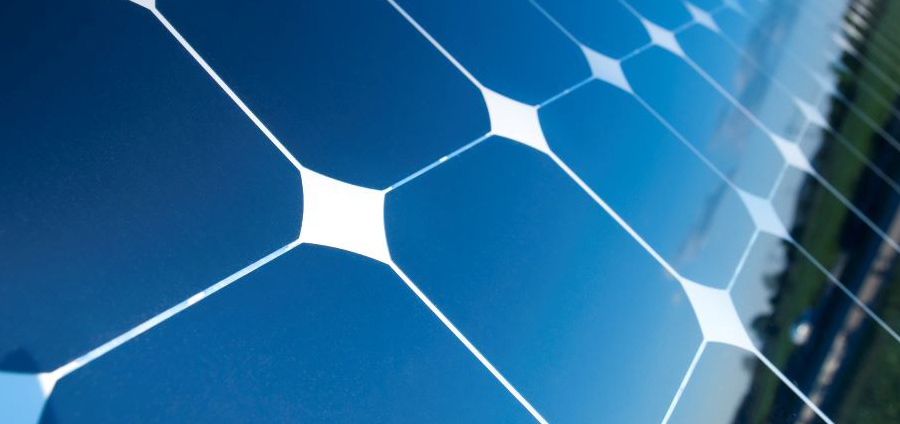
This concentration area will provide students with knowledge about the materials and processes that are key to a variety of technologies in the energy and environmental industry sectors. Technologies include clean and efficient materials extraction, clean energy sources, materials for energy storage, efficient energy utilization, advanced energy systems, materials for sustainability and green manufacturing.
Elective Options for Energy and Environmental Materials
Choose one course from the list on B.S. Degree Requirements. If you don't have a preference, selecting INDE 315 (Probability and Statistics for Engineers) is encouraged (NOTE: INDE 315 can count EITHER towards the Math Elective OR as one of the Engineering Fundamentals Electives, but it cannot count in both categories).
Choose two courses from list. Select courses that meet the prerequisites for the technical electives you want to take, if applicable.
| Course and credits | Title | Notes |
|---|---|---|
| CHEM 223 (4) | Organic Chemistry - Short Program | Prereq is 1.7 in CHEM 152 , 153, or 155. |
| CHEM 224 (4) | Organic Chemistry - Short Program | Prereq 1.7 in CHEM 223 |
| CHEM 162/165 (5) | General Chemistry - 3rd quarter | Prereq 1.7 in CHEM 152; This course is Prereq for CHEM 237 |
| CHEM 237 (4) | Organic Chemistry - 1st quarter | Prereq 1.7 in final course in General Chemistry sequence |
| CHEM 238 (4) | Organic Chemistry - 2nd Quarter | Prereq. 1.7 in CHEM 237 |
| CHEM 312 (3) |
Inorganic Chemistry | Prereqs are CHEM 153/155/162; and CHEM 224/238/336. CHEM 165 students have already completed the equivalent of this course. |
| CHEM 317 (4) | Inorganic Chemistry Laboratory | Prereq is CHEM 165 or CHEM 312 |
| CHEM 452, CHEM 455, or CHEM 456 (3) | Physical Chemistry | Prereqs for all are CHEM 153, 155, or 162; MATH 126 or MATH 136; and PHYS 123. Courses can count towards the Natural Science Requirement or the Technical Elective Requirement but not both |
| PHYS 224 (4) | Thermal Physics | Prereq MATH 126/136 and PHYS 123 |
| PHYS 225 (4) | Introduction to Quantum Mechanics | Prereq. 2.0 in PHYS 227; or a 2.0 in PHYS 123 and MATH 136; or a 2.0 in PHYS 123, MATH 207 (or MATH 307), and MATH 208 (or MATH 308). |
| PHYS 227 (4) | Elementary Mathematical Physics | Prereq 2.0 in PHYS 121, 122, 123, and MATH 126 |
| PHYS 228 (4) | Elementary Mathematical Physics | Prereq 2.0 in PHYS 227 |
Choose 8 credits.
| Course and credits | Title | Notes |
|---|---|---|
| EE 215 (4) | Fundamentals of Electrical Engineering | Prereq MATH 126/136, MATH 207 (or MATH 307), and PHYS 122 |
| INDE 250 (4) | Fundamentals of Engineering Economy | |
| NME 220 (4) | Introduction to Molecular and Nanoscale Principles |
15 Credits, a minimum of 9 credits of MSE classes.
| Course and credits | Title | Notes |
|---|---|---|
| MSE 452 (3) | Functional Properties of Materials II | |
| MSE 466 (3) | Energy Materials, Devices, and Systems | |
| MSE 471 (3) | Introduction to Polymer Science and Engineering | |
| MSE 476 (3) | Introduction to Optoelectronic Materials | Prereq AMATH 301 or 142, and completion or concurrent enrollment in MSE 331 |
| MSE 486 (3) | Fundamentals of Integrated Circuit Technology | |
| MSE 498 (3) | Special Topics Courses on Electrochemical Materials | |
| MSE 504 (4) | Introduction to Microelectro Mechanical Systems | |
| MSE 539 (4) | Renewable Energy I | |
| BIOEN 504 (4) | Introduction to Technology Commercialization | |
|
CHEM 452, CHEM 455, or CHEM 456 (3) | Physical Chemistry | Prereqs for all are CHEM 153, 155, or 162; MATH 126 or MATH 136; and PHYS 123. Courses can count towards the Natural Science Requirement or the Technical Elective Requirement but not both |
| CHEM E 341 (3) | Energy and Environment | Prereq CHEM 142; Math 124; PHYS 121 |
|
CHEM E 498 (3) | Special Topics courses on Solar Energy Conversion and Solar Cells, and Battery Systems Engineering | |
| ENVIR 480 (5) | Sustainability Studio | |
| PHYS 324 (4) | Quantum Mechanics | Prereq 2.0 in PHYS 225, PHYS 228 |
| PHYS 325 (4) | Quantum Mechanics | Prereq PHYS 324 |
| ENGR 321 | Engineering Internship Education | Earn 1 credit for an internship 1-20 hours/week, and 2 credits for an internship 20 hours/week+. Can count up to 4 credits of internship towards your degree |